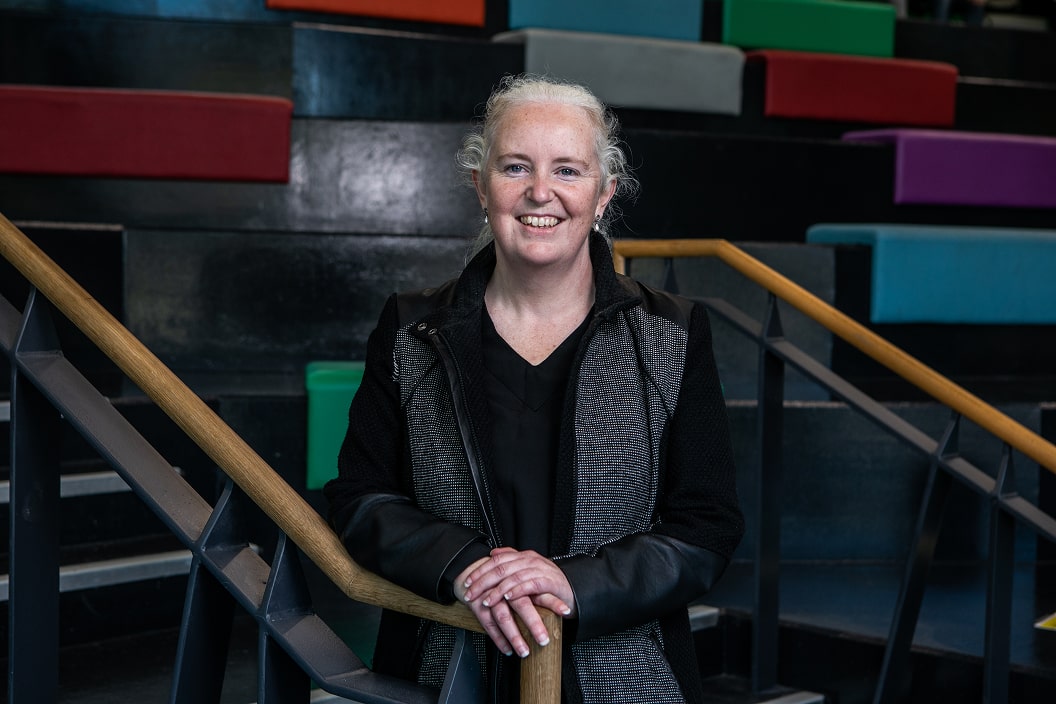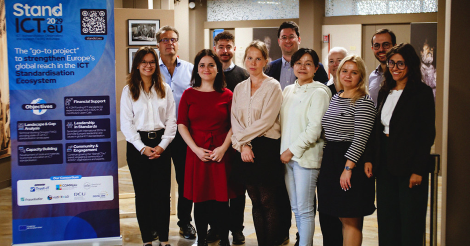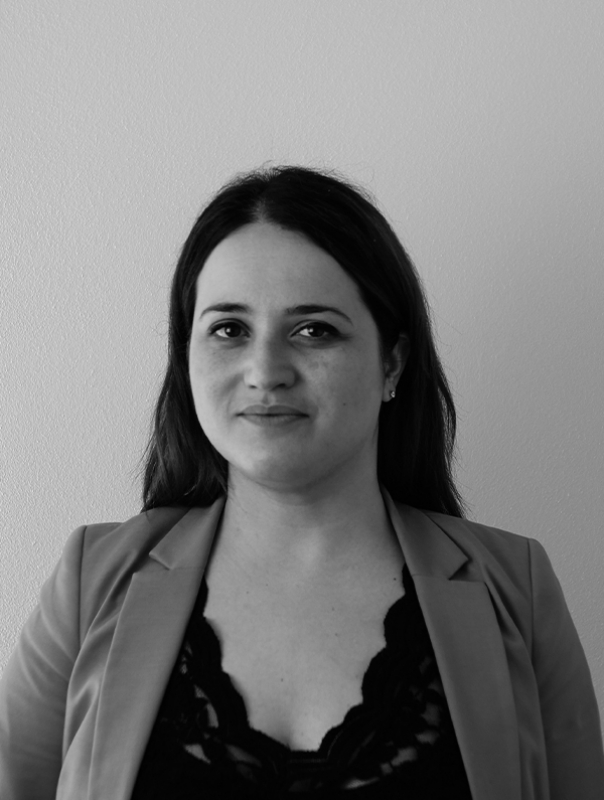Read time: 3 mins
PISA – Italy, 10.06.2024 - StandICT.eu and PQ-REACT are pleased to announce a new strategic collaboration aimed at enhancing cybersecurity and developing quantum-resilient technologies. This partnership brings together StandICT.eu's expertise in ICT standardisation and PQ-REACT's cutting-edge research in post-quantum cryptography to address the growing need for secure digital infrastructures in the face of emerging quantum computing threats.
StandICT.eu is a renowned European initiative focused on supporting ICT standardization activities across Europe. By providing grants and resources to ICT experts, StandICT.eu ensures that European interests are represented in the global standardization landscape. This collaboration with PQ-REACT aligns perfectly with StandICT.eu's mission to promote robust and forward-thinking standards in technology, where cybersecurity and quantum technologies are major target ICT areas.
PQ-REACT is an innovative project funded by the European Union, is dedicated to researching and developing post-quantum cryptographic algorithms and solutions. As quantum computers become more advanced, current cryptographic systems are at risk of becoming obsolete. PQ-REACT involves important industrial and standardization stakeholders that will facilitate the process to communicate PQ-REACT progress and outcomes on running initiatives.
The MoU can consolidate even further these commitments. The European Union supports both projects.
The key objective of this partnership is to raise awareness and enable capacity building. StandICT.eu and PQ-REACT will work together to raise awareness about the importance of European engagement in developing standards for quantum technologies among stakeholders, including policymakers, industry leaders, and the academic community. This can include joint webinars or publications.
“We are excited to partner with PQ-REACT to address one of the most pressing challenges in cybersecurity today. By combining our efforts, we can endorse the European efforts and contributions for standardisation in quantum technologies, and especially post-quantum cryptography” – Mona Marill, StandICT.eu Fellowship Programme Manager, StandICT.eu
“One key activity of PQ-REACT is identifying significant opportunities to push contributions into future standards, pre-normative collaborative development environments. This collaboration with StandICT.eu is an important milestone and an excellent chance to enable PQ-REACT standardisation partners to participate in the identified and prioritised standardisation activities, as well as contribute to reinforcing our commitment to the Standardisation ecosystem” says Giulia Pastor, Dissemination and Communication Manager of PQ-REACT.
--
For more information:
StandICT.eu 2026
Consortium: Dublin City University (IE) - Financial and Administrative Coordinator, Trust-IT Srl (IT) - Technical Coordinator, OpenForum Europe (BE), AUSTRALO (ES), European Digital SME Alliance (BE), and Fraunhofer Institute for Systems and Innovation Research ISI (DE).
For more information on StandICT.eu 2026, contact us at info@standict.eu and follow us on our social media channels: Twitter | Linkedin | YouTube
StandICT.eu 2026 has received funding from the EU’s Horizon Europe Programme under Grant Agreement no. 101091933. Views and opinions expressed are, however those of the author(s) only and do not necessarily reflect those of the European Union. Neither the European Union nor the granting authority can be held responsible for them.
PQ-REACT
Consortium
National Center for Scientific Research Demokritos (Coordinator) (EL), Fraunhofer FOKUS (DE), Sant’Anna University (IT), Universidad Politecnica De Madrid (ES), Hellenic Mediterranean University (EL), AGH University of Krakow (PL), The Defence Institute “Professor Tsvetan Lazarov” (BG), INDRA (ES), TELEFONICA (ES), AUSTRALO (EE), SPLORO (ES), SMARTLEX (IT).
Contact
For further inquiries please contact us at contact@pqreact.eu
Social Media
Stay connected with PQ-REACT by following the project’s social media:
PQ-REACT has received funding from the European Union’s Horizon Europe research and innovation programme under grant agreement N° 101119547. Views and opinions expressed are however those of the author(s) only and do not necessarily reflect those of the European Union or European Union’s Horizon Europe research and innovation programme. Neither the European Union nor the granting authority can be held responsible for them.



